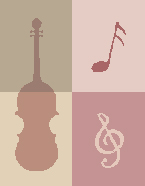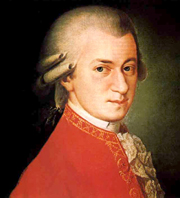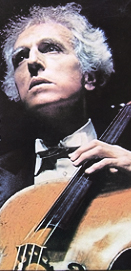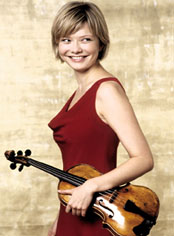

EDITORIAL
I was astonished once to be told by a knowledgeable and respected lecturer of English literature that she had no appreciation for music. This was particularly surprising because she was very attuned to the sensitivities in literature and in the visual arts. And it was many years before I heard anything similar again, this time from one of my relatives, even though her own brother was, like me, a music-lover, an avid collector of music and passionate listener.
Later still, this was repeated from a most unexpected source, when Richard Osmam, the very bright novelist and TV presenter, was talking to Moira Stuart on the radio. He too confessed to lack of appreciation for music, especially classical, because, he said, he preferred words, even though his own brother was a musician in a band and loved music.
Most people would confess to appreciating music of some kind to some degree, and indeed music is the best selling artistic commodity of them all. Most people can learn to play an instrument or even to write music at a basic level without being a musical genius. We know that babies respond positively to music, in fact even before they are born.

Our brains seem to be hard-wired to respond to music, we do not need to be taught. But it seems there are levels and degrees of appreciation, from zero upwards - from people who say they just like the words, and people who only like one band, all the way up to those who can appreciate all good music of any kind in its full range of resonance and meaning. And there are geniuses in evaluating music, able to grasp the complexity of any piece or an individual performance whereas others might understand or enjoy only some aspects of it, like the rhythm or melody.
It is possible to be insensitive to music without realising it. I can think of one presenter on a popular classical music radio station with little appreciation. His understanding of music is that of a tune, or a linear story, or something else single-layered. He can only get to grips with music by converting it into something else, like a logical sequence, or words. The man is highly intelligent, just like my literature lecturer, but his analytical brain cannot fathom out what music is in terms of its own language. Which indicates that the process of evaluating and responding to music involves a different genetic ability quite separate from any other function of the brain; most of us have it to a greater or lesser degree but a few do not have it at all.
This leads to the conclusion that there are also musical geniuses who neither write nor perform music, just like geniuses in literary criticism who could never write literature of substantial merit, or people highly sensitive to art who could never paint. The process of evaluating art is very different from creating it - the latter means putting things together, the former means taking things apart. Genius does not lie in the doing or making, genius means first and foremost understanding, seeing - or hearing - and may then find expression in various different forms, or it may choose not to express itself at all.
So one can be a genius in how one hears music but, apart from genetic ability, it takes many years and a lot of life experience to fully develop this gift. It takes as many years to learn how to listen to music as it does to play an instrument.
A different aspect is how music involves our bodies, not just our minds. We know that music affects the heart beat and blood pressure as well as cognitive function. It can reduce pain and improve memory. Lullabies lower heart rates and ease pain in children. When people sing together, their heartbeats become synchronised. No wonder people say that music makes them feel good.
MRI scans show that the whole brain is affected when listening to music; the brain looks for patterns and order, and this stimulates all of it. Some studies claim that listening to complex music improves intelligence, especially in children. Music affects intellectual development, and if you listen to Mozart before taking an IQ test, you perform better - any classical music, but Mozart seems to be best for that.

Mozart 1756-1791
In the modern world, it is astonishing how many different forms music has taken, each very distinct and with something different to say. In the western world alone, from pop to classical to jazz to folk, rock… the list is endless, and that is before we mention music from the rest of the world, or so-called 'fusion' between different types. How can musical sound be organised in seemingly infinite ways?
The answer lies in the collective genius of the human brain. This lump of jelly inside the human skull is capable of achievements like the making of another universe by a small god. Music proves that the human brain is capable of creating infinity, or many infinities if we include the other arts, plus science, etc. If, as some believe, our universe is infinite, then it seems to be designed like Russian dolls, with many infinities inside each other. It is not just in theoretical mathematics that many infinities can exist.

Tortelier
The word music is derived from the Greek for muse. Our musical scales originated with the Greeks also. The great French cellist Tortelier commented that, as artists, the Greeks were not abandoned to passion but were "cool". He said, "They were great artists but cerebral, philosophical, cool. They are still." The Greeks did not just value great performances or the creation of art, they always analysed what they saw, heard or did, and this is what has left such vast cultural wealth behind for future generations, and indeed for all the nations of the earth.

Music is said to be the organisation of sound towards beauty, or I would say, beauty and meaning. However, the definition is unsatisfactory. Music as an art form is so much more than a sequence of sounds, regardless of how beautiful or meaningful. Although abstract, it creates or evokes vast complex worlds in our minds, almost instantaneously. It addresses both our emotional and intellectual side equally and at the same time, without needing an explanation or any verbal equivalent. It can lift us to great heights or reach our deepest or darkest depths. Like literature or any of the arts, it transmits an experience, but in the most direct way, bypassing the logical mind.
This also explains how very young instrumentalists, children, manage to express a huge range of emotions when they play, which they could not possibly have experienced yet, because the music itself has the ability to transmit feelings and ideas beyond their years. They still have a lot to learn in how to play and how to listen, but the music enables them to do things they do not know yet.
I never learned to speak French but when I was a teenager, a relation used to bring home quantities of French music and I fell in love with it. Later on, I did consider how astonishing it was that I could feel every nuance of meaning and feeling in each song without understanding a single word of the lyrics. We all know that music is a universal language, but it seems to convey to us even the meaning of the words in a foreign language. We cannot translate the lyrics, but we do not need to, because we know what the singer means with every breath. This quality of music leaves me truly spellbound.
Kinds of music
If that is true, then there are not many different kinds of music (a word also used above) but only three: good, bad and indifferent.
Whether 4th century BC Greek music (we still have the scales) or twentieth century Arnold Schoenberg, whether an aboriginal didgeridoo or the modern symphony orchestra, whether a band of electric guitars or an unaccompanied singer, music has always tried to reflect emotions and ideas in various combinations and proportions, from the simplest to the most complex, more or less in the abstract, more or less undiluted by other considerations.

With travel, communications and technology, the 20th century saw an explosion of new genres emerging to express the added complexity of the modern world, and to exploit the capabilities of previously unimagined aids such as electricity in the guitar and keyboard, or new materials in percussion, wind instruments etc.
And the increasing commercialisation of music encouraged much to flourish, not all of it worthy of our attention.
For a long time, we had what we now call classical music which, at its best, could change in mood, direction and complexity, from sad, happy, triumphant and the full range of emotions, to asking cerebral questions and perhaps attempting to answer them, all within one piece.
Then came other music like the blues which had just one simple message, "I'm hurting," and showed that music can be very simple indeed at a surface level, but still be of equal merit in its underlying complexity as an art.
Jazz added to that the freedom of individual musicians to express their own different take on a theme within one piece in an ensemble, but without common agreement.
With Rock & Roll, or rock, we went from "I'm hurting," to "I'm hurting and I am angry" and messages that flowed from that, like "I'll do whatever I like, therefore."
Unfortunately this was misunderstood by simple minds who sought to imitate it and became a plain "I'm angry," in other words, for no particular reason. Punk, Grunge, Heavy Metal etc. found an audience who demanded little more than the technical ability to produce a certain sound, or meaning of no more than a basic slogan. And so we had the music of counter or subculture, with an anti-message, and no depth or self-explanation. This cannot be discussed here as the art or music, which implies a certain degree of complexity, but only as something else, a social phenomenon, for example.
Along the same timeline, there was polarisation in the popular or commercial music of the masses, perhaps artificially generated by marketeers, by their own admission exploiting what they called different markets. Pop, folk, etc. were capable of producing outstanding one-off examples of great art, while their genre was, for the most part, bad or indifferent music, completing the circle of this present argument, that these terms are used purely for convenience and there is no such thing as kinds or types of music, except good, bad or indifferent. Most popular music was woven around one single theme or emotion for the entire piece. A reaction to commercial exploitation was the return by many to the softer ballads where the interpretation of words was of equal importance to the sound element, a less abstracted approach, without pushing other genres out much, but coexisting in amicable divorce settlements.
In parallel, we saw the emergence of highly intellectualised forms of music. For example, minimalism found many forms such as Arnold Schoenberg's serialism, with different rules which, in the hands of a genius, opened new worlds worth exploring. And just like electricity had changed our range of instruments, electronic machines encouraged experimental music, where not all sound elements were organised by human ingenuity but the machines were allowed to introduce an element of chance into the composing, with the musician then permitting an intriguing outcome, and his audience being forced to abandon their listening habits. Instead of linear form, sound was structured in other ways. Musical notes, information and time itself were slowed down, often forcing the total disengagement of the rational mind in the listener. Dissonant and atonal music revealed other possibilities. It was not long before the resulting discoveries were incorporated into the more traditional forms of music, including popular, allowing a more instinctive enjoyment of what chance had revealed, but manipulated with precision by the composer. And so the barriers between classical and other contemporaneous music, like rock, were broken down.
If the above seems to describe mostly western music, predominantly from the Anglo-Saxon world or North/Western Europe, it has to be said that most changes and most new developments happened in this most 'liberated' part of the world (politically, culturally, economically - for better or for worse) and the music genres of western origin have come to dominate the entire world. Each young generation of whatever nationality provided a new impetus to this spreading of the West's musical values - fortunately, in most cases, without turning a back on their own traditional forms, often of greater merit. Greece, Spain, Portugal and Latin America, for example, had developed as many different forms as the rest of the West put together, each very distinct, and the same could be said about some music from Africa. At the same time, certain western musicians, from classical to pop and from the Beatles to Philip Glass, turned to eastern music for fresh (to them) ideas and inspiration. The word fusion was used to describe the result, such terms doing little to acknowledge that music can take infinite forms and should not be classified in a way which distracts us from seeing the uniqueness of each piece and the genius (when present) of its creator.




